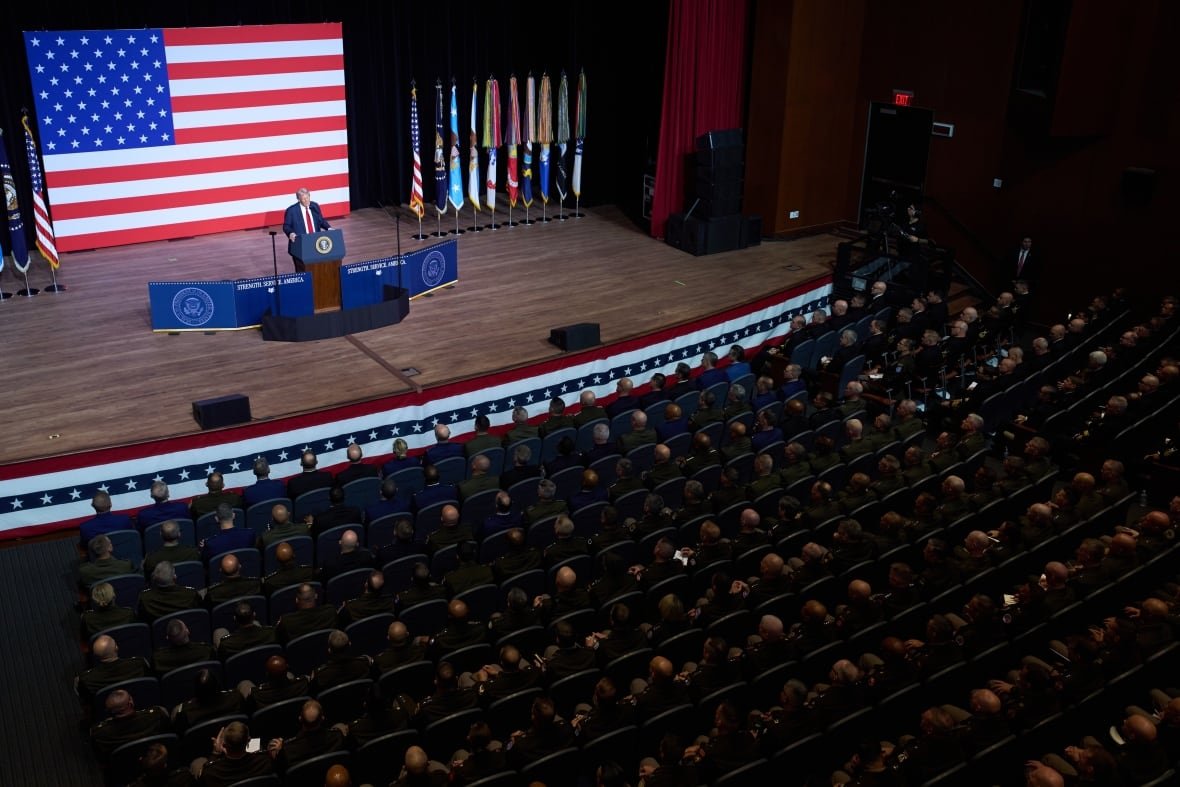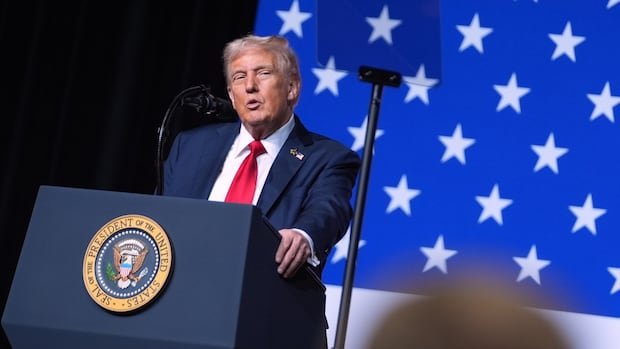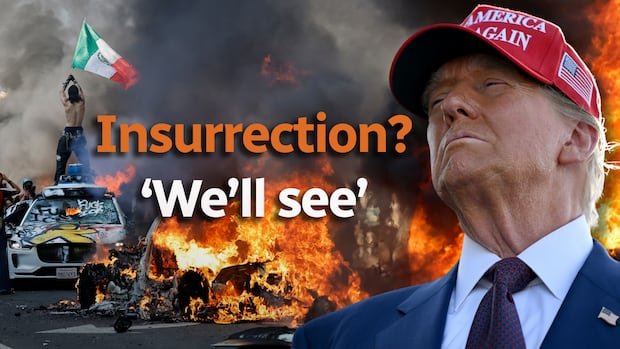U.S. President Donald Trump on Tuesday suggested using American cities as military “training ground,” the latest example of the president’s willingness to use the might of the nation’s armed forces on the home soil of his choosing.
Addressing hundreds of U.S. military generals and admirals flown in for the speech, Trump said the U.S. military should be used to control what he described as “the invasion from within” rather than abroad.
“It seems that the ones that are run by the radical left Democrats, what they’ve done to San Francisco, Chicago, New York, Los Angeles, they’re very unsafe places. And we’re going to straighten them out one by one,” Trump said in an auditorium in Quantico, Va. The military personnel, apolitical by custom, did not respond or applaud as the president spoke.
Despite a U.S. judge declaring it was illegal to send the National Guard to Los Angeles in June, President Donald Trump said it’s his ‘obligation’ to send troops to Chicago to combat crime.
The U.S. president has continued his strategy this week of threatening to deploy the National Guard in American cities run by Democrat mayors, including Portland and Chicago, despite protest from state governors and other elected officials on the ground. Still, several Democratic governors and Canadian political experts said the “training ground” remarks were an extraordinary departure from the norm for an American president.
“When you basically say the words … ‘We want to begin to train our military on our own people, to train them so that they can go afar,’ I don’t know if there’s precedent for that out of the mouth of any American president,” said Brad Lavigne, a former campaign director for the NDP, told Power & Politics Tuesday. “It’s fantastically horrible.”
Trump’s rationale at odds with local reality, governors say
Trump has said it’s necessary to send military personnel into cities, blaming Democrats’ crime and immigration policies. He has referred to Portland as “war-ravaged” and threatened apocalyptic force in Chicago.
Oregon and Illinois have already sued to block the National Guard deployments in their cities, saying the president’s portrayal is not an accurate reflection of the reality on the ground.
“Portland … is a beautiful, vibrant, successful city. We are not a war zone. I was out there all weekend long. People were out and about, shopping, going to restaurants, going to soccer matches, going to shows. Portland is a beautiful place and we are not under siege,” Oregon Gov. Tina Kotek said during an interview with MSNBC on Monday.
“I continue to not understand what the mission is here, but we do not need military intervention in Portland and it’s unconscionable. It’s nonsensical.”
U.S. President Donald Trump deployed the National Guard to respond to immigration protests in California with a rarely used law invoked when the government believes a rebellion is underway. Andrew Chang breaks down how Trump’s framing of these protests as an emergency — along with everything from trade deficits to fentanyl — exists as part of a larger pattern of governing by executive order with unchecked power.
The National Guard is typically controlled by the state and mostly only “federalized” when a governor asks for help. The president can deploy the military unilaterally to fight an insurrection, invasion or domestic violence, but the definition of those terms are open to interpretation.
Lavigne said the cities Trump called out by name on Tuesday — San Francisco, Chicago, New York and Los Angeles — are “classics” the president “likes to pull out” when criticizing Democrats for crime and immigration policies. Others, like Portland, have been singled out since the Black Lives Matter protests in the summer of 2020. (That year, Trump referred to Oregon’s most populous city as a “hellhole” and a “mess.”)
U.S. Sen. Lindsey Graham, a longtime Trump ally, said the address Tuesday was “a breath of fresh air.”

Reactions from other Canadian figures
Speaking on Power & Politics, former Conservative cabinet minister Lisa Raitt said the Canadian government should leave most of the debate around the National Guard to the U.S., but take Trump’s eagerness to use the military seriously.
“It’s their country. It’s their situation. It’s their problem. Where I’ve landed on now is we need to make sure that we’re not naive and that we’re not stupid up here in terms of being prepared for whenever [Trump] decides to turn his gaze to the north instead of the Democratic cities,” she said.
Dan Moulton, a Liberal strategist in Ontario, agreed he found Trump’s remarks alarming, but offered a caveat: Not every bombastic, campaign-esque presidential proposal comes to fruition, he said.
“Trump talks a lot and says he’s going to do a lot of things,” Moulton said. “He doesn’t always follow through with them.”


